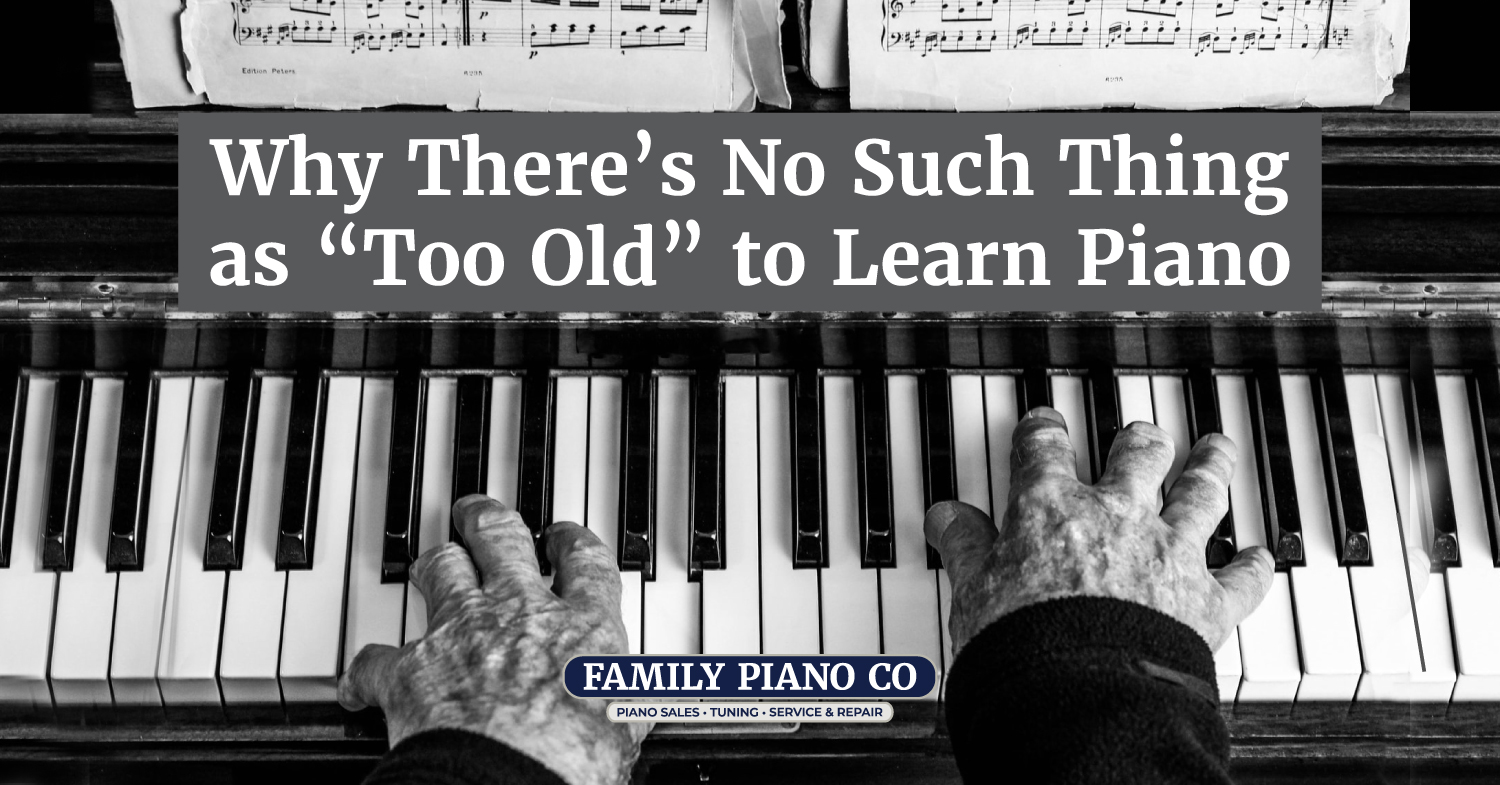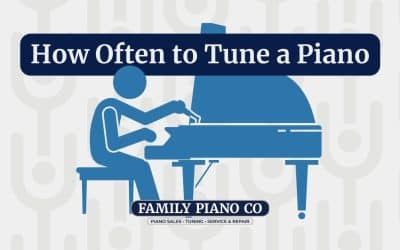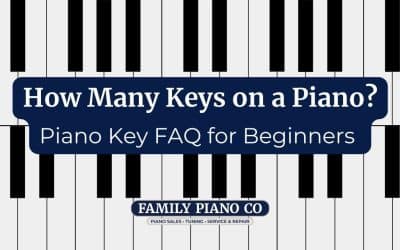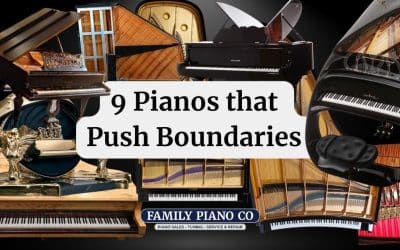One of the most common comments I hear from adults of all ages is that it’s “too late” for them to begin learning piano; that you have to start as a child to be any good, and they’re much too old to even try.
This is a sad misunderstanding that prevents many people from starting to learn an instrument. The truth is, and I say this as a piano teacher, there is no such thing as being too old to start learning music!
A piano teacher’s honest opinion on adults learning piano
As a piano teacher of over 5 years with a piano performance degree, I started out primarily teaching children. Over the years, through both circumstance and a developing specialty, I found myself primarily teaching adult piano students.
I’ve spent a lot of time reflecting on the differences between teaching children piano versus adults and this is a topic I’m quite passionate about. With nearly each and every adult piano student I’ve taught, they enter into lessons carrying a lot of misconceptions about how starting or continuing lessons as an adult puts them at a disadvantage to people who started lessons as a child.
I disagree that starting as a child is in any way essential, and I actually believe that in many circumstances, starting piano later in life can be very beneficial for your musical growth. In fact, there are quite a few major advantages adults have over children while learning piano!
Why it’s easier to learn piano as an adult
People often say music is just like learning a language, which children’s brains pick up quicker than adults. However, I would describe learning an instrument more like learning a technical skill, a task better suited to an adult mind. In fact, adults not only can learn new instruments just as well as children, they will typically make quicker and more well-rounded musical progress than young beginners.
In most ways, adults will typically learn quicker with a greater understanding. Learning musical vocabulary and following complicated directions comes quicker to adult learners. Adults also quickly grasp abstract thinking and understand emotional nuance on a mature level, which are vital skills for performing and interpreting music. And of course, the two biggest components to learning any skill is dedication and discipline, concepts that require a more mature mindset to fully understand.
The advantages are so numerous and widespread that I often say half-jokingly that the biggest real advantage to starting off piano lessons as a child is just that you won’t remember the more tedious early stages of learning.
Here’s a breakdown of what I see as the most notable advantages adult piano students have over young piano students:
1. Longer, more extensive musical histories
Learning an instrument, much like learning a language, is a task that is made much easier if you’ve had prior experience!
Music is such a broad field with so many transferable skills between different instruments that any experience at all with learning an instrument in the past helps tremendously in learning a new instrument. Whether that’s singing in a choir, at the karaoke bar, piano lessons during your childhood, the garage band you had in high school, or even a few years of experience in middle school band or orchestra, having this prior experience gives you a massive head start over young beginners who are learning music for the very first time.
Even if this is the first time learning an instrument, as an adult learner you’ve had much more time to listen to many different genres of music and may even have musician friends in your day-to-day life. Even this increased familiarity with music is a great asset that gives you a big leg up over a young beginner!
2. Understanding of preferences for learning
So often, the biggest struggle of learning an instrument is relating all the necessary concepts in a way that makes sense to you personally. Since every single student responds differently to different styles of teaching, it can be tough for younger learners to do this.
Adult learners typically have a much better understanding of their own learning styles, and are therefore much better able to communicate this with their teacher which allows them to best adapt and personalize the material.
Knowing yourself, and having learned how you best learn, makes for easier and quicker musical growth. Not to mention, you will know what styles or techniques you wish to learn once you get through fundamentals.
3. Greater desire to learn
Let’s face it: there’s a reason so many of us started taking piano, guitar, violin, voice etc. lessons as a child and did not keep going with it. Maybe we were “forced” into taking lessons by our parents, just wanted to try it out and hastily decided it wasn’t for us, or had to choose between lessons and another extra-curricular activity.
Children are growing and changing all the time, and the desire to learn an instrument could just be a passing phase, the thing-to-do of the month. Not every child is actually passionate to learn music, unlike most adult students.
Adult music students are taking lessons exactly because of their desire to learn. It’s a decision they’ve made for themselves, and therefore, adult students tend to be more motivated. Adults tend to better understand how beneficial music can be and the value it can bring into their life far better than children. Of course, it also helps that adults pay for their own lessons themselves and thus are highly motivated to get the full value out of their lessons!
4. Experience with skill-building and discipline
The most difficult part of developing and mastering any new skill is consistently putting in the work day in and day out without the expectation of sudden, drastic improvement.
Learning an instrument is most definitely a “slow and steady wins the race” situation. You’re learning a highly complicated skill with large physical and mental demands.
Adult learners understand the process of learning a difficult skill much better than most children. They can visualize their goals better while understanding how the effort they put into it helps bring them to their goals in a more clear, direct way than most children are capable of.
5. Quicker grasp of intellectual and emotional concepts
Playing a musical instrument is every bit as much of a mental task as a physical task, and in both areas, adults have the advantage over young children.
The intellectual and emotional concepts found in music is one place where the extra decades of life experience an adult learner possesses gives a massive advantage. Whether it’s a better understanding of the historical and cultural influences of a piece of music, or a deeper understanding of the intense emotions the music you’re playing conveys, adults just have much more background information to draw upon and bring into their music and are able to think about the music on a deeper, more abstract level.
6. More peer-like relationship with teachers
The student-mentor relationship is an extremely important part of the learning process.
When children take music lessons, the relationship between child and teacher tends to be much more traditional, usually mirroring the same sort of student-teacher relationship children are familiar with in a school classroom with the teacher taking charge and mapping out the child’s musical path. The child’s role is essentially to listen carefully to their teacher and although great music teachers can make the learning process more fun, interactive and personalized, the overall learning process tends to be more authoritative and top-down than with adult students.
Adult students will have a more equal, peer-like relationship with their teacher. This sort of relationship leads to a better back-and-forth dialogue with the teacher which ultimately makes for a much more personalized learning experience which is one of the biggest benefits of taking private music lessons!
7. Fully-grown hands
This one might seem like a no-brainer but young beginners quickly run into some constraints on the piano because they are still growing.
Once young piano student beginners progress past the beginner levels, they are increasingly asked to play note stretches and figurations that are much better suited to larger, fully-grown hands. Most children cannot reliably stretch their hands out to an octave (say from Middle C to the next C up) until ages 10-12. For many children who are developing musically much faster than they are physically growing, this can be quite frustrating.
Of course, there are many musical compromises that can overcome these difficulties and through practice the hands become much more flexible and nimble, yet there will be many moments where the answer truly is “this will become easier and less frustrating as you grow up”.
Adult learners have a big advantage with full grown hands! Even while the stretches required in piano music will still feel uncomfortable as a beginner, as more skill and better technique is achieved, adults generally don’t need to worry about being held back by their own physicality.
Obstacles to overcome as an adult piano student
All this being said, there are still some challenges that are more pronounced in adult students. I find these challenges to be very much outweighed by all the advantages adult students have, but they are still substantial and worth mentioning. The bright side is that these challenges tend to be internal — we are our own worst enemies when it comes to limiting ourselves.
To be successful as an adult music student, these tend to be the major obstacles to overcome:
1. Fear of inadequacy
“There are 10-year-olds better than me, I should quit!”
Adults tend to be much more afraid of making mistakes and feel much more uncomfortable while progressing through the beginner stages of learning piano.
This is understandable; people naturally like doing things they are good at. The early stages of learning piano can feel like a grind at times as you learn all the most fundamental skills that will allow you to start learning the kinds of music you’re really wanting to learn.
I like to remind my adult students that they not only are capable of and likely will progress past the early stages much quicker than the vast majority of children, but the early stages of learning the fundamentals will lead to better results as they’re going into it with an adult intellect that can better grasp how these early skills will shape up in the big picture.
I also like to remind them that there are ten-year-olds who can play better than myself, and that Mozart started composing at age 5. There’s always a bigger fish no matter your skill level but that’s no reason to be discouraged. Rather, look at it as encouragement about what is possible in your future if you stick with the piano!
Music is not about comparing yourself to others; it’s all about you and the unique perspective you bring to it. As an adult learner, you have a wealth of life experiences to bring into the music and it will mean more to you than it would to a young beginner.
The world absolutely does not need another Mozart, we already had one. We need more folks with a desire to express themselves musically and a drive to accomplish their dreams to bring more light into the world.
Becoming comfortable with making mistakes and allowing yourself the ability to improve is a lesson in humility, one that is rewarded handsomely by musical progress!
2. Unreasonable expectations
Unreasonable expectations are one of the most common and silliest causes for adult students to give up on learning an instrument. It usually comes down to underestimating the amount of time it takes to learn the instrument to the standards that the student is hoping for.
It is often the case that an adult student will progress faster in two years of lessons than I progressed in my first six years of lessons, but instead of feeling proud of that accomplishment, in their mind they’ve failed because they set an unreasonable goal for themselves without having the perspective to understand why it is unreasonable and absolutely does not mean they should give up.
For example, if your goal is to be able to play “Clair de Lune,” you’ve just set your goal as playing a very technically demanding piece that would generally be classified as an advanced level piece. Many students will want to skip ahead past multiple levels of increasing difficulty to play their level 9 “dream piece” without really mastering all of the intermediate level skills that will allow you not only to play the piece you want to play, but to play it well!
Music learning is a methodical process. It’s all about the fact that you are progressing, not an arbitrary time limit you’ve set for yourself and put yourself down about not achieving. Rome was not built in a day and you certainly cannot build a city before you learn how to build houses, streets, schools, etc.
Celebrate your own musical accomplishments and focus on the enjoyment of music and with hard work and persistence. You will get to where you want to be in the exact amount of time it takes to do so.
And remember: we aren’t invested in learning music because it is easy – if it were easy, everyone would be doing it!
3. Busier schedules, more responsibilities
The fast-paced lifestyle most adults live leaves little time for the many hours of practice it takes to learn an instrument. Finding the time to practice is an issue that affects just about every adult learner.
The good news is that even 20 or 30 minutes several times a week can lead to progress if you practice in a focused, efficient manner.
Of course, the more time you can dedicate to practicing, the quicker you can expect results to come. With efficient, consistent practice, you can achieve remarkable musical growth on a limited time schedule. This is where having a great teacher who can help guide you towards making the most out of your limited practice time really can make all the difference!
In short: it’s never too late to learn piano!
As a piano teacher who primarily teaches adult music students, I vehemently disagree with the adage, “I’m too old to learn.”
In fact, each and every day I see first hand how adult students make remarkable progress and bring music into their own lives and the lives of their friends and families!
While there are a few obstacles that come with learning piano later in life, there are many more advantages. In any case, as long as you really wish to learn, it can be done!
Music is one of those things in life that is so fundamentally tied to our own nature and being that all it takes is a will to learn and some hard work to achieve our dreams, no matter what stage of your life you are in.





0 Comments